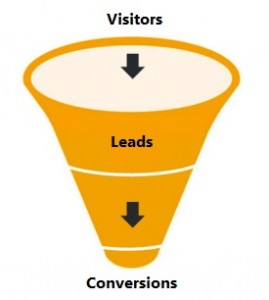In small business, every decision is a major one. Hiring the wrong employee, choosing the wrong vendor, or spending your marketing dollars in the wrong place can set you back dramatically.
For small businesses that see great opportunity to expand their client base online, choosing a competent search engine optimization (SEO) consultant to make their investment is essential.
SEO is the process of building a website’s relevance, credibility and authority with the search engines. These three objectives work to develop higher natural rankings (and in turn more search traffic) for the website when users search for specific keywords. Small businesses often times work with SEO consultants to help them achieve these objectives, but not all of them end up achieving their ultimate goal.
Why, you ask? Because not all SEO consultants are built equal. The truth is, some folks out there who market themselves as “SEO experts” simply just throw up smoke screens (and excuses) in front of their clients until the money runs out.
If your small business is in the market for a competent SEO consultant to help execute a small business SEO strategy, here are 5 questions you should consider asking them to help qualify their competence:
1) Do You Guarantee No. 1 Rankings?
This question will quickly quickly help you determine whether the SEO consultant is worthy of your trust. The fact is, No SEO consultant can guarantee natural rankings because they aren’t the ones who own the search engines! If you run into a consultant who promises you No. 1 rankings, you might want to think twice about their credibility and whether or not you want to do business with them.
2) How Do You Build Rankings For Your Clients?
SEO isn’t brain surgery. Be wary of SEO consultants who overuse SEO jargon and a mess of other technical terms to explain how they execute their clients’ SEO programs. Yes, SEO is a practice that is based on a multitude of different factors, but it can easily be explained in layman’s terms.
Make sure that the SEO consultant covers both on-site and off-site strategies that they utilize. Among the topics your SEO consultant will discuss are:
- Keyword research and competitive analysis
- Meta tag optimization and optimization of on-page content
- Off-site strategies such as Content Marketing, Social Media, Blogging, etc.
Be sure they don’t subscribe to any automated SEO linking networks to help build rankings for their clients – these programs to far more harm than good.
3) How Important is it that I get Involved with Social Media?
Nowadays if your Internet marketing strategy doesn’t include social media, your strategy isn’t living up to its full potential. Social media signals and social sharing is a part of how Google ranks your website’s content. The more it’s shared, Liked, Tweeted, and Loved, the better the opportunity it will have to rank toward the top of the search results.
Social media also affords businesses an opportunity to increase the awareness of their brand with both prospective and existing customers. Keeping consumers engaged with your brand through social media by asking them questions, giving away freebies, Re-Tweeting them or giving them a mention helps to build trust, long-term brand loyalty, and keeps your company Top of Mind. While this doesn’t pertain entirely to SEO, the consultant should be aware of the power of social media can have for small businesses in growing their online presence.
4) Can You Provide Examples of Your Work?
This question’s purpose is multifaceted. First, it helps you determine the quality of work that the SEO consultant has produced for other clients, including how competitive the keywords were they achieved rankings for and what industries they’ve performed SEO for before.
Secondly, the answer of this question can give you a better idea of the typical caliber of client the SEO consultant works with and what the consultant’s fees might be to take on your project.
5) What Reporting Should I Expect and How Often?
Staying on top of the overall performance of your campaign is a must – especially for small businesses. Knowing where your marketing dollars are being invested and what you’re getting in return for that investment is an important expectation to have when selecting your SEO consultant.
Among the reporting you should expect from your consultant are:
- Website traffic reports segmenting Direct, Organic and Paid search referrals
- Ranking reports for your targeted keywords for the three major search engines (Google, Yahoo!, Bing)
- Link Building/Content Marketing reports: What articles where submitted and where.
- Citation Building Reports: What local business directories were claimed, optimized, etc. for the time period.
- An analysis of the performance and suggestions moving forward.
The frequency of these reports might vary from report to report. Some of these reports could be delivered on a weekly basis (Traffic, Keyword Rankings), while others might be delivered on a monthly basis. Be sure your SEO consultant has a well-structured reporting system to keep you well informed on the performance of your campaign.
These five questions will go a long way in helping your small business determine which small business SEO consultant is the most qualified to take on your project! If there is any way I can be of help to you in your SEO endeavors, feel free to drop me a line!



 For other lead-generating websites, a website conversion can be construed in a few different ways. For example, if you’re a realtor, getting a lead (phone call or email contact) from a prospective listing simply gets that site visitor into the realtor’s “conversion funnel.” It’s then the realtor’s job to sell themselves as the right agent for the job to the person. But the Internet marketing company can’t necessarily help in that process once the initial contact is made, so the contact itself is considered a website conversion.
For other lead-generating websites, a website conversion can be construed in a few different ways. For example, if you’re a realtor, getting a lead (phone call or email contact) from a prospective listing simply gets that site visitor into the realtor’s “conversion funnel.” It’s then the realtor’s job to sell themselves as the right agent for the job to the person. But the Internet marketing company can’t necessarily help in that process once the initial contact is made, so the contact itself is considered a website conversion. In terms of website optimization, simply having an attractive website doesn’t guarantee a user will convert. Here are some ways that web design elements play into a user’s overall experience and ways to increase the likelihood of a conversion:
In terms of website optimization, simply having an attractive website doesn’t guarantee a user will convert. Here are some ways that web design elements play into a user’s overall experience and ways to increase the likelihood of a conversion: